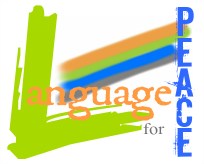A while ago we shared a resource for books on bullying, and also a list of Children’s books for use in Peace education, and I was reminded about it reading an article by Jennifer Luke and Catherine Myers. The article, entitled Toward Peace: Using Literature to Aid Conflict Resolution, says more eloquently and succinctly the thoughts I have had floating around in my head for some time:
“Children cannot develop positive conflict resolution skills until adults help them to define their problems. “Teachers can help children understand the problems that cause their conflicts in terms that make sense to them” (Carlsson-Paige & Levin, 1992). Children’s literature is possibly one of the best resources available to teachers. Using literature, teachers can present conflicts in such a way that children are able to visualize the conflict, empathize with the characters and appreciate nonviolent resolutions to disputes. “Providing opportunities for children to read and listen to stories that portray different types of conflicts and possible resolutions helps them gain a broadened perspective and see the skills of peacemaking at work” (Schomberg, 1993, p. 9).”
The article also provides its own list of literature, highlighting texts that fit particular kinds of conflict that might especially effect children, like misunderstandings between friends or family, jealousy, playground skirmishes, etc and also more broader potential conflict areas, like peace among different groups and global peace.
I also especially appreciated the note the article made about choosing books cautiously. Not all books that include conflict provide space for instruction, or show how conflict can be resolved peacefully. They can perhaps help spark discussion of what isn’t the right way to handle conflict, but maybe these shouldn’t be the first books we pick for students; instead perhaps they might be an appropriate option later, after students are familiar with many different positive strategies for resolving conflict.
How can you use literature in your class to help your students imagine new ways to approach conflict?
How might you use discretion in choosing literature for you class? What kinds of books might not be helpful?

I agree that carefully chosen, high quality children’s literature can be effective in exploring issues such as conflict, peace, racism etc. As children participate in conversations about ideas presented in these texts, they learn how to talk about these issues and they develop the vocabulary necessary to discuss complex issues. Asking questions and responding to stories they hear and/or read and talking about their thoughts, develops a deeper understanding. An article which explores this is The Interdependence of Social Awareness and Literacy Instruction by Alison Lobron and Robert Selman (The Reading Teacher March, 2007).
LikeLike
Posted by Marg Epp | September 28, 2015, 9:08 pmThanks for the article suggestion, I can’t wait to read it! This is a topic that really interests me. I read a lot as a child and continue that habit, and many times in my childhood I encountered a tough topic in a book before it came to me in real life. Even just in reading about it, the real thing became less of a shock, but I wonder even how much more I could have gotten from them if I had read them with a teacher or a parent who pulled out the tough parts and dialogued with me about them.
LikeLike
Posted by abigailjlong | September 29, 2015, 6:21 amhi! nice post here. i think processing questions that engages learners to think critically about the situations in the story/literature and whether they would choose to behave the same or otherwise and why (most importantly) if they were put in the same situation could be a good entry point to explore their own ideas about conflict resolution. when questions are raised in a way that provide them with a safe environment to express themselves, young ones could possibly benefit more from the literature…and could provide teachers with a benchmark for a follow-through activity like a role play enacting how they could provide a better ending to a story.
LikeLike
Posted by Emily Lambio | October 7, 2015, 2:44 amI love the idea of doing a role play afterwards! In the language academy where I worked in Korea, we sometimes did drama as an activity, having the kids play the parts of the characters in the story we were reading that month. However, I never thought to have them play with the story’s plot change the story ending, or change details in how the characters responded to each other as they acted it out to help practice conflict resolution strategies. That would have been an easy way to incorporate “hands-on” peace education into the language curriculum–I will have to keep that idea in my brain for the next time I’m teaching!
LikeLiked by 1 person
Posted by abigailjlong | October 7, 2015, 7:03 amYes and have fun too 🙂
LikeLike
Posted by Emily Lambio | October 13, 2015, 10:46 am